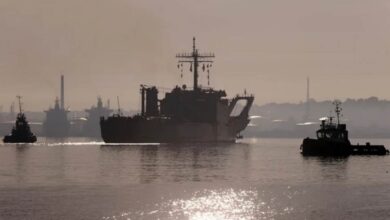Can Peru forbid the assistance of Nicolás Maduro to the Summit of the Americas?
Peruvian Chancellor informed his Venezuelan counterpart that the president would not be welcome at the Summit. What does the Public International Law say about the decision?
On 13 and 14 April 2018 in Lima, it will take place the VIII Summit of the Americas. In recent days, it became public knowledge that the government of Pedro Pablo Kuczynski, who hosts the event, does not agree with Nicolas Maduro assistance to the event. In this regard, the Peruvian Chancellor, Cayetana Aljovín, sent a letter to Jorge Arreaza, his Venezuelan counterpart, reporting that, according to the Quebec Declaration, adapted at the III Summit of the Americas in 2001, "any alteration or unconstitutional rupture of the democratic order in a State of the Hemisphere constitutes an insurmountable obstacle to the presentation of said state in the Summits of the Americas process".
Of course, the government of Maduro did not receive well the decision. The Venezuelan president, shortly after knowing the intentions of Kuczynski, said "Do they not want to see in Lima? … They will see me. Because even if it rains or flashes, by air, land or sea, I will reach the Summit of the Americas with the truth of the homeland of Simón Bolívar and Antonio José de Sucre. There will come the truth of Venezuela"
International law
In addition to statements of Maduro, Venezuela's foreign ministry has said that there is no reference in international law to prohibit President Maduro assistance to the meeting. In a press release, the Venezuelan government has said that they have legal elements that "show that there is no impediment whatsoever to Venezuela to participate in the VIII Summit of the Americas", therefore, "we confirmed that President Nicolas Maduro Moros will attend punctually ".
The release added that "the intention to withdraw the invitation is not only groundless from the legal point of view, but is also erratic and unilateral." The communique calls on the government of Peru to be adhered to "the legitimate rules of game" in terms of multilateral summits of this kind.
In that sense, Camilo Riaño Tovar, an expert in public international law at the National University of Colombia, explained to LatinAmerican Post, that the fact that a country openly declared Nicolas Maduro as persona non grata could be seen as a violation to the international law rules. The reason is that "it restricts the ability of a state to establish relations with other states. This capability, we must not forget, is one of the pillars of international relations today. "
Peru justification
Latin America has always been known as a region that has maintained an active and capable diplomacy that respects the sovereignty of other states. The region is characterized by finding solutions to the various problems in the best way possible. However, regarding the crisis in Venezuela, these 'good offices' have been channeled to make a call to Maduro to implement effective and concerted solutions. The call even has the support of the OAS and UNASUR.
However, as there seems to be no government regulation for apply strategies to solve the crisis, different nations are beginning to take more radical measures. In fact, Maduro not being invited to the Summit of the Americas is just one of them.
On the other hand, Peru was based on the Declaration of Quebec 2001 to reject the presence of Maduro at the Summit of April. "If we are to apply international law literally, it is necessary that convention Quebec and other documents that have been made around the regional organization are taken IGNORE INTO account by all states", said Riaño. Thus, if the primary value of these spaces is the integration and democracy, "it is necessary to respect and encourage the participation of all states, including Venezuela, of course", said the expert.
What if Maduro insists on going and Peru avoiding him?
The different desires of the parties would end in the emergence of a delicate diplomatic crisis between the two countries. The relationship of these two nations, in more than two hundred years of republican history, has been characterized by maintaining strong ties of international brotherhood.
While Nicolas Maduro has, as head of state, special permits for entry IGNORE INTO other countries, if the refusal is maintained, Riaño Tovar explained that the best decision would be to give full powers to the ambassador of Venezuela in Peru to attend the meeting.
In this sense, and according to good practices of public international law, Peru would not be able to prohibit the attendance of Venezuelan President to the Summit of the Americas.
The United Nations Charter on democracy and international equality, the statutes of the OAS, the covenant of Lima, and diplomatic law in America, would be some of the most important legal tools Venezuela can use to address the measures taken by the government of Pedro Pablo Kuczynski.
However, it is very difficult to reverse the decision of naming Maduro as persona non grata in Peru. What follows, concludes the internationalist Camilo Riaño, is a sum of good offices to achieve a concerted solution to the matter. The strategy should be based on diplomacy and dialogue, in order to overcome differences and promote the search for solutions together regarding the current situation in Venezuela.
Latin American Post | David Fernando Barrera
Translated from “¿Perú puede prohibir la asistencia de Nicolás Maduro a la Cumbre de las Américas?”






